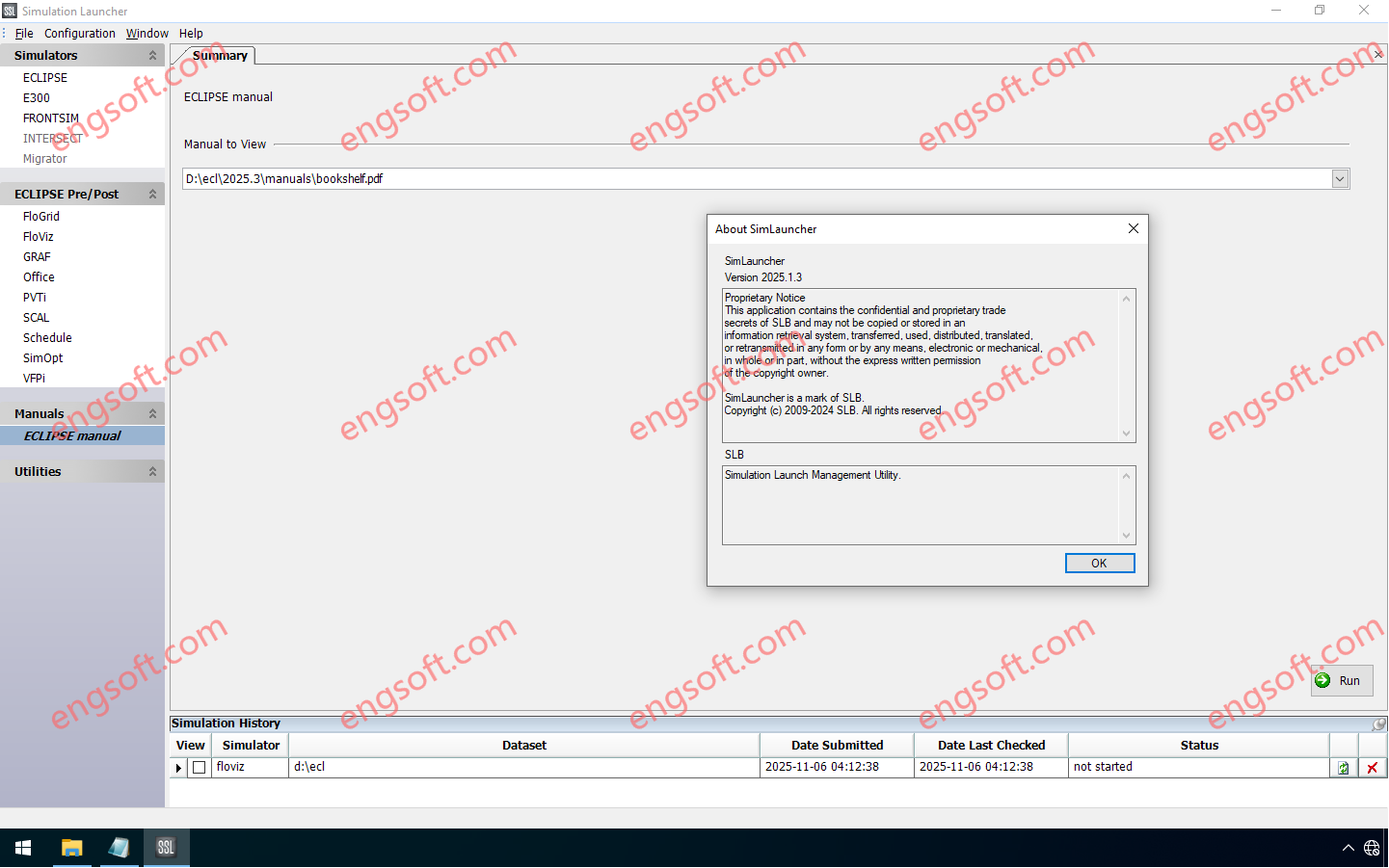The Eclipse industry-reference reservoir simulator offers the industry’s most complete and robust set of numerical solutions for fast and accurate prediction of dynamic behavior for all types of reservoirs and development schemes.
The Eclipse simulator has been the benchmark for commercial reservoir simulation for more than 25 years thanks to its extensive capabilities, robustness, speed, parallel scalability, and unmatched platform coverage.
Available versions: 2025.x , 2024.x , 2023.x ,…
Schlumberger Petrel and Studio 2024.9 Tested Picture
The Eclipse 2025.3 release includes developments enhancing the performance, usability and functionality of the simulators.
Eclipse 2025.3 Release updates
Flexible well modeling with additional user defined argument (UDA) support
Additional UDA support has been given to the WELPI keyword. This keyword helps directly define the productivity index of a well. By allowing flexible expressions as input, workflows such as calibration to testing data and others can be streamlined.
Global well connection modification for local grid models in ECLIPSE 300™ reservoir simulation software
Where a well has connections in both the global and local grid, and the wellhead is in a local grid, it is now possible to use global grid keywords such as WPIMULT, CPIFACT, WELOPEN and CSKIN to modify individual connections in the global grid.
New and improved functionality for both ECLIPSE 100™ reservoir simulation software and ECLIPSE 300 software
- The supplied example datasets have been modified to generate INIT files, so that the results can be imported directly into Petrel™ subsurface software.
- Evaluation of cutbacks applied on the same timestep has been made more robust.
For ECLIPSE 100 software
- Improvements have been made to report the wellbore hydrostatic head correction, when using the averaged density method in a run containing vaporized oil in wet gas.
- Improvements have been made to calculate pressure drops in extended networks with GEFAC application.
For ECLIPSE 300 software
- End point scaling reporting and verification has been made more robust. The FILLEPS keyword now generates a complete set of endpoints for drainage and imbibition regardless of whether ENDSCALE is also specified. Use of water-based end point keywords, in a model without water, will now generate a warning. In thermal models, warnings for inconsistent end point values in rock-filled cells are now suppressed.
- Validation of vertical flow performance (VFP) tables specified in a BRANPROP keyword has been enhanced.
- PRT file reporting has been improved for tables specified in the RPTPROPS keyword. This includes K-value tables, which now use the component names as column headers, and options to improve the wrapping for wider tables.
- Reporting steam well rates for stopped and shut wells has received consistency improvements.
- Restart cases with generated solubility tables in versions prior to Eclipse 2023.2 are now identified, to ensure consistency of the solubility model in place and to avoid discontinuity in properties.


评论前必须登录!
注册